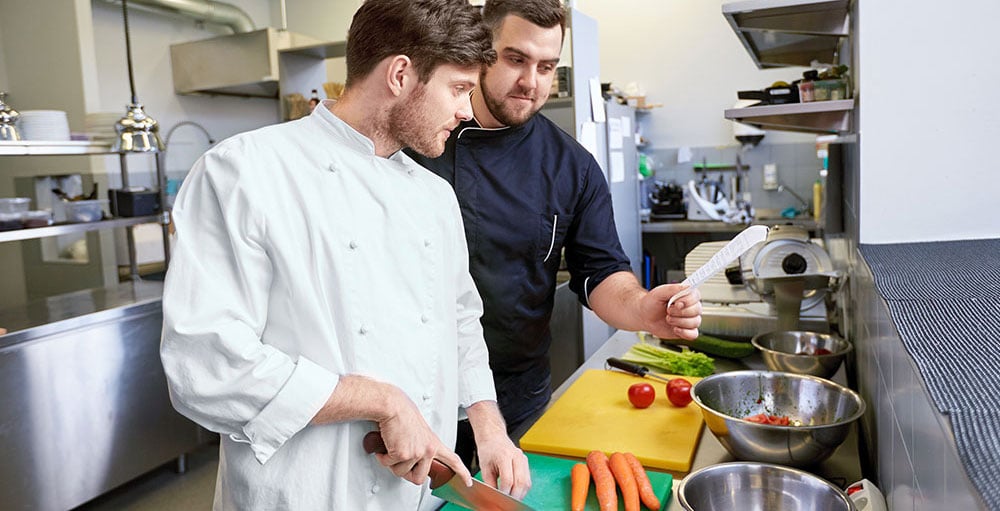Why the servsafe food handler certification florida Is Crucial for Florida Employees
Why the servsafe food handler certification florida Is Crucial for Florida Employees
Blog Article
Boost Your Task Opportunities: Why a Food Trainer Certificate Is a Must-Have in the Culinary Sector
In today's competitive culinary landscape, the relevance of a food trainer certification can not be overstated. As restaurants and food solution establishments significantly prioritize certified staff, specialists outfitted with this qualification stand to obtain a considerable benefit.
Relevance of Food Safety
In the cooking industry, the relevance of food safety can not be overemphasized. Ensuring the security of food is extremely important for securing public health and preserving customer depend on. Contaminated food can bring about major health and wellness issues, consisting of foodborne ailments, which can affect people and result in substantial obligation for food facilities. Consequently, carrying out strenuous food safety methods is important for any type of cooking operation.
Food safety encompasses a series of procedures, including appropriate food handling, storage, cooking, and offering techniques. Sticking to these methods not only minimizes the threat of contamination but also aids in conforming with local wellness guidelines. Proper training in food safety makes it possible for cooking professionals to identify prospective risks and implement safety nets efficiently.
Furthermore, a solid commitment to food safety and security can improve the track record of a culinary establishment, cultivating client loyalty and business development. Consumers are increasingly knowledgeable about food safety and security concerns, making it crucial for food handlers to demonstrate their adherence to best practices. Ultimately, focusing on food safety and security is not simply a governing demand; it is an essential element of giving high quality food solution and securing the well-being of customers.

Certification Requirements
Food safety methods are only as reliable as the people executing them, making certification a crucial step for food handlers in the cooking industry. To obtain a Food Handler Certification, prospects need to generally complete a training program that covers important topics such as foodborne health problems, hygiene, personal health, and risk-free food taking care of strategies.
Most qualification programs are created to accommodate various learning styles, offering choices for online, in-person, or hybrid layouts. Individuals need to pass an evaluation to show their understanding of the product, with a minimum passing rating frequently set at 70%.
The period of training can vary, with some programs calling for only a couple of hours, while others may cross several days. After effectively finishing the course and examination, candidates obtain their certification, which is normally valid for three to 5 years, depending on regional laws.
Renewal commonly includes retaking the course or finishing a refresher program to ensure that food trainers remain upgraded on the most up to date techniques and criteria. Compliance with these qualification demands not only boosts individual knowledge but additionally adds to the general security and high quality of food solution operations.
Task Market Demand
How has the job market for food trainers evolved in the last few years? The demand for food handlers has considerably boosted, largely driven by the growing awareness of food security and hygiene among consumers and regulative bodies. With the surge of foodborne health problems, dining establishments, catering services, and food production business are focusing on the hiring of certified food trainers to make sure conformity with health and wellness laws. This shift has resulted in a heightened emphasis on food safety and security training and accreditation as prerequisites for employment in the culinary industry.
In addition, the expanding restaurant field, especially with the introduction of food distribution services and food trucks, has developed an abundance of job opportunities for food trainers. The requirement for skilled workers who can safely prepare and take care of food has actually ended up being critical. servsafe food handler certificate. In enhancement, as cooking businesses embrace much more stringent safety and security procedures, the worth of a food trainer certification has climbed, making it a crucial asset for job seekers
Consequently, people going into the culinary workforce are locating that obtaining a food trainer certification not only boosts their employability however likewise positions them favorably in an affordable work market that progressively focuses on food security and hygiene standards.
Advantages of Certification
Acquiring a food handler certificate uses numerous advantages that substantially improve a specialist's standing in the cooking industry. First and primary, it demonstrates a commitment to food security and hygiene, which is extremely important in protecting against foodborne diseases. This qualification gears click this site up people with vital understanding relating to safe food handling methods, including appropriate storage, cooking temperature levels, and cleanliness procedures
Additionally, having a food trainer certificate can increase an individual's employability. Many companies focus on prospects with this qualification, seeing it as an indicator of expertise and proficiency. This can lead to far better task click here for info chances and possibly higher salaries, as licensed individuals are usually turned over with greater responsibilities.
In addition, the accreditation fosters a society of security and accountability within the work environment. Keeping a food handler certificate can open up doors to more academic and career development chances within the culinary area. servsafe food handler certificate.
Actions to Obtain Qualified
Obtaining a food trainer certificate includes a simple process that can set people on a path to boosted job prospects in the culinary market. The very first step is to locate a certified program or training provider that offers food safety courses. Numerous organizations provide both in-person and on-line choices, permitting adaptability in understanding.

After effectively passing the examination, individuals will get their food trainer certification, which is typically valid for a details period, typically 3 to 5 years. To maintain accreditation, it might be required to finish refresher course programs or retake the examination before the expiration day.
Finally, it is essential to verify any type of regional or state-specific guidelines regarding food handler qualification, as demands can vary. By following these actions, individuals can get their accreditation and substantially enhance their employability in the affordable culinary landscape.

Conclusion
Finally, getting a food handler certificate is vital pop over to these guys in the culinary sector, as it ensures adherence to food security criteria and boosts employability. With the growing need for certified employees, this credential not only opens up doors to work opportunities however likewise contributes to job improvement and enhanced earning possibility. Ultimately, a food handler certification represents a commitment to safety and security and professionalism and trust, fostering a society of responsibility that benefits both employees and employers in the food service field.
Report this page